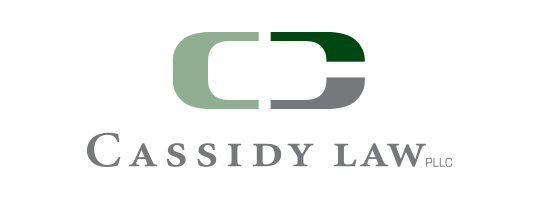
Presented by Cassidy Law and Decisive Point
This four-part “Legal Lunch” series will provide critical insights on the laws and strategic best practices surrounding international trade, mergers and acquisitions, and selling into classified markets. We strongly urge you to take advantage of this unique opportunity to learn about the legal issues that inherently exist in contracting with the Federal Government.
Legal Lunch Topics & Descriptions
Part 1 (June 26): Reach New Markets – Selling Your Goods & Services Internationally
Selling your goods and services internationally is a great way to grow your business. However, whether selling to US allies or other countries, a US business and its owners need to understand the basics around exporting. This lunch and learn will discuss:
- How the US exporting system works
- How to determine where your goods and services can be sold
- What licenses you may need to sell your goods and services internationally
- How to comply with regulations like ITAR (international traffic in arms regulations), trade laws that may restrict certain types of sales overseas and other laws and regulations unique for defense and intelligence contractors
Part 2 (date TBD): Devil in the Details – Identifying and Mitigating Red Flags When Selling Internationally
When selling internationally, US business must be sure not to sell to persons, companies and to countries that the US government has sanctioned as not being able to buy US goods and services; must be sure to avoid transactions that may be considered corrupt or may be an attempt to launder money. Reputable businesses often take the position that they will easily be able to identify these risks. However, in a global market, selling to sophisticated buyers and working with sophisticated businesses, some of whom may be up to no good, trips up even the most reputable business and may expose both the business and its owners, investors, and employees to criminal sanctions. This lunch and learn will discuss:
- What are some of the important laws that apply to US businesses, particularly government contractors, when they sell internationally
- Why a business needs to understand who its business partners are
- How to identify and mitigate red flags that may indicate a corrupt or otherwise illegal transaction
- What to do if your business is informed it is under investigation
Part 3 (date TBD): Selling into Classified Markets – What You Need to Know to Sell Classified Materials to the US Government
Companies that either have or are developing goods or services that the defense or intelligence community may want to purchase, before actually being awarded a contract, must undertake certain steps to become a “classified” contractor. These requirements are in addition to obtaining personal security clearances. Even the smallest of companies can become a classified contractor. This lunch and learn will discuss:
- What are the requirements for a contractor to develop and sell classified goods and services
- What does a company need to do to put these requirements in place
- How to handle non-US employees, non-US owners, non-US investors when you are selling classified goods and services
Part 4 (date TBD): Positioning Your Business for Acquisition – What Will a Prime Contractor, a Purchaser, or the Government Want To Know About Your Business’ Compliance With Laws
Growing your business usually entails plans to team with larger businesses and to eventually sell to a larger company. Most prime contractors and purchasers are going to conduct due diligence on your business; or at least ask for certifications that your business has followed the law. This means just as you make sure you don’t buy a lemon when you buy a car – your business partners, purchasing companies, and the government will look to make sure they aren’t buying a lemon by doing business with your company. In addition to evaluating your financials, they are going to assess whether your company has complied with laws. This lunch and learn will discuss what you can do, now, to best position your company to establish processes and controls that will give a business partner, a purchaser, and the federal government the confidence to do business with your company.
- What is an ethics and compliance program and, when is it legally required?
- Why does an ethics and compliance program add value to your company
- How you can best set up an ethics and compliance program to demonstrate to prime contractors, potential purchasers and the government how your organization complies with the law

